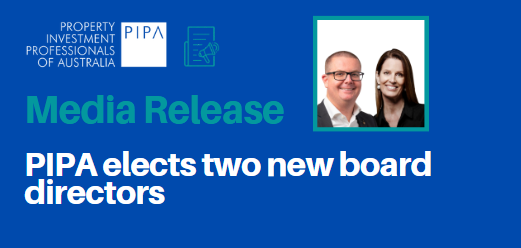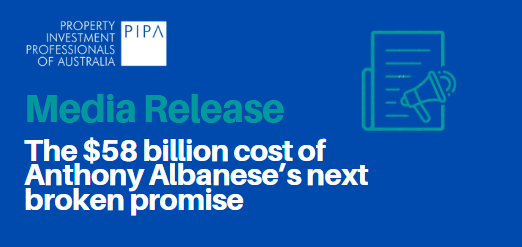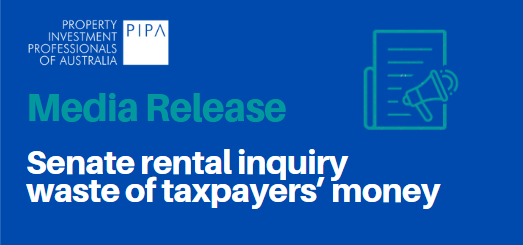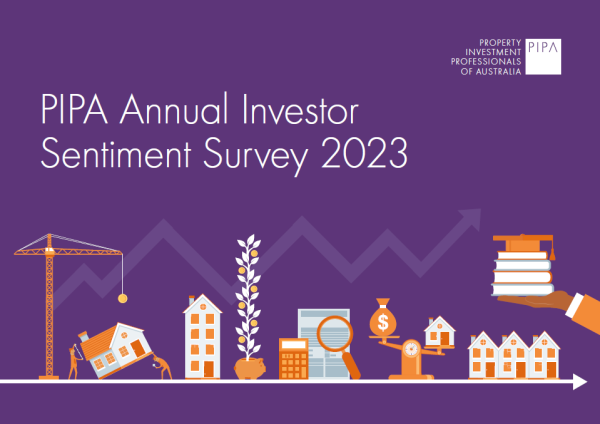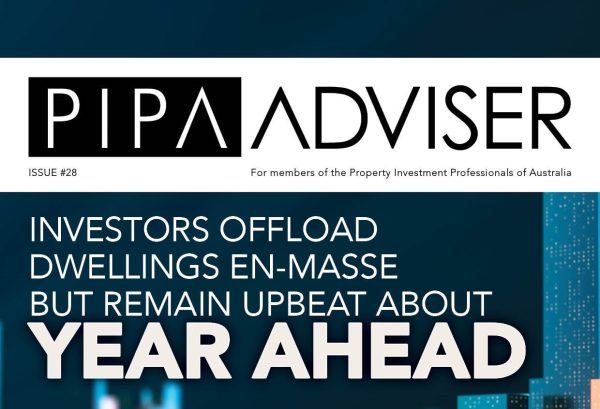Questions must be asked about supposed “investor” survey
Dec 2022Karen Millers
Categories
Location ReportsMedia releasesNational market updatesPersonal advisersPIPA AdviserPIPA Annual Investor Sentiment SurveysPIPA Member ProfilesPIPA video updatesPIPA webinarsPodcastsProperty advisersProperty newsLatest Articles
Location Report – City of Geraldton
Which property cycle are we in?
Rent rises ease but crisis’ link to population density found to be tenuous
Jordan van den Berg: The ‘Robin Hood’ TikToker taking on Australian landlords
Victorian property investors face yet another new property tax as council tests levy
Research by a government-funded think-tank that supposedly proves rental reforms have no bearing on property investment activity is not only misguided but also grossly inaccurate of today’s rental market, according to the Property Investment Professionals of Australia (PIPA) and the Property Investors Council of Australia (PICA).
The study by the Australian Housing and Urban Research Institute (AHURI) reportedly examined the factors that influence landlords’ rental investment decisions by analysing rental bonds data after past rental reforms in NSW and Victoria as well as a survey of property investors. The study only considered reforms from 2010 to 2020.
AHURI’s funding is predominantly received from the Australian Government as well as state and territory governments.
PICA Chair Ben Kingsley said the study clearly had a pre-set narrative to influence a national rental reform agenda and failed to address the current dynamics in rental markets since 2020.
“Why would you look back that far when the serious nature of some of these reforms are only a couple of years old with the biggest-ever tenancy reforms happening in Queensland in 2022, Victoria in 2021 and New South Wales in early 2020?” Mr Kingsley said.
“They also didn’t include the latest ATO data for the 19-20 financial year that showed a fall in the number of individuals who own an investment property, and they had ample time to include this data given it was released back in July of this year. Again, it didn’t fit the narrative it wanted to convey.”
PIPA Chair Nicola McDougall said the report headline stating investors had sold for capital gains was not ground-breaking or even new, given that the 2022 PIPA Annual Investor Sentiment Survey released the same information back in September.
“Our results from a survey of 1618 investors in August 2022 found that 16.7% of investors have sold at least one property over the previous two-year period, with rising market conditions the main reason why. We released this information publicly back then,” Ms McDougall said
“However, in a sign of more rental stress to come, 19 per cent of investors nationwide signalled in our survey that they intended to sell even more property over the year ahead with the top four reasons being the now-axed new Queensland land tax, changing tenancy legislation making it too costly or hard to manage, the threat of losing control of their asset because of new or potential government legislation, and the threat of rental freezes being enforced by governments.
“Tellingly, if the percentage of investors who are considering selling winds up doing so over the next year, this could potentially deplete the supply of rental properties around the nation by another 200,000 properties, especially if investment buying activity also remains low as it is currently.”
Mr Kingsley said studies that looked at rental markets prior to the pandemic are not only redundant but also grossly inaccurate.
“AHURI is completely spinning a pre-conceived narrative if it is looking at any data before 2020, as the serious rental reforms occurred after this period,” Mr Kingsley said.
“What our members are telling us is that the sentiment has very much shifted in their minds in terms of rental reforms and that controls on private rental providers has crossed the line, which is fundamentally reducing the numbers of rental properties.
“This is a critical situation that has played out on the back of rental reforms – in combination with banks asking investors to pay higher interest rates and ARPA putting the brakes on allowing investors to borrow – and is further magnified by politicians spruiking the narrative about ‘greedy landlords’ preying on renters.”
Ms McDougall said the report did highlight the churn of investors with many entering and exiting the rental market within five years, but the study didn’t bother to ascertain why anyone would make such a significant financial commitment to then pull the pin within a few short years.
“The financial imposts on investors grows ever-higher and when you add in more and more rental reforms over the past two years in particular, it’s clear that many investors have decided to sell up,” she said.
“It must be noted that the majority of investment properties are bought by homeowners and yet even the AHURI report indicates that about 30 per cent of our population are renters, which is a proportion that has remained static for decades.
“The continued attacks on investors under the guise of tenant protection are having the opposite effect – a critical undersupply of rental properties and soaring rents that will delay, or even prevent, many tenants from ever becoming homeowners.”
ENDS
For more information or to organise interviews, please contact:
Bricks & Mortar Media Director Kieran Clair on 0417 793 447 or via media@bricksandmortarmedia.com.au
About PIPA
Property Investment Professionals of Australia (PIPA) is a not-for-profit association
established by industry practitioners with the objective of representing and raising
the professional standards of all operators involved within property investment.
For more information visit www.pipa.asn.au
About PICA
PICA is a not-for-profit organisation committed to advocating and lobbying on behalf
of property investors’ interest and educating its members on the economic benefits
and risks of property investing in Australia.
For more information visit www.pica.asn.au
